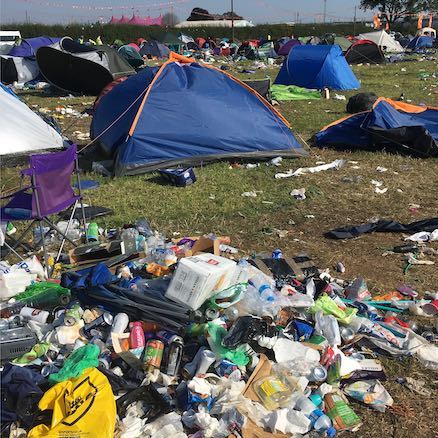While I’ve never been the most consistent blogger, I’ve found myself returning to the keyboard today, spurred by a persistent itch to address a recurring concern. Over the years, I’ve penned just three posts, all from 2021—a testament, perhaps, to the inertia of Covid-induced lockdowns.
But let’s not mistake my silence for a lack of thoughts. I often engage in spirited conversations, spewing out opinions and observations. Yet, by the time I sit down to crystallize those thoughts, the urgency fades, the moment passes, and my reflections remain unvoiced. However, a recent experience has rekindled my resolve to share once again.

A few weeks back, I visited a festival—whose name I’ll conveniently omit, though it’s irrelevant in the grand tapestry of this narrative. The scene was familiarly distressing. (For context, you might want to revisit my previous piece, “Festival Litterbugs?”) Amidst the debris, our team collaborated with Herts 4 Refugees, filling an articulated lorry with discarded but salvageable camping supplies destined for Calais. This endeavour also supported Little reCreations by sourcing materials for sustainable decorations and accessories.

Soon after, an article caught my eye, spotlighting parental concerns about youth attending such festivals. Its ominous headline read: “Kids going to ******? Don’t panic! It’s a rite-of-passage for UK teenagers.” While I recognize the need for young adults to explore, socialize, and carve their identities, I question the wastefulness that accompanies this “rite.” Is it acceptable for this rite to culminate in nearly 200 tons of discarded waste, with only a fraction being recycled or reused?
“Kids going to ******? Don’t panic! It’s a rite-of-passage for UK teenagers”
These queries have consumed me, oscillating between frustration and determination. Three years post my initial Festival Litterbug piece, I find myself revisiting the same quandaries:
- Why do some deem this behaviour acceptable?
- Why do certain individuals exhibit accountability while others shirk responsibility?
Studies suggest four primary culprits:
- Laziness or carelessness.
- Inadequate trash facilities.
- Lenient regulations.
- Pre-existing litter.
So, what’s the solution?
Education remains paramount. Organizers must embed sustainability messages across platforms—tickets, websites, social media—to instil responsible behaviour. Innovations like Camplite’s pre-pitched tents and Festival Shops’ equipment rentals mitigate waste. Additionally, Eco-Bonds incentivize attendees to collect and return waste, reclaiming their deposit.
Engaging audiences is equally crucial. By weaving sustainability narratives into festivals—featuring eco-warriors, trash heroes, and motivational speakers—we can foster a collective ethos of responsibility.
Admittedly, this challenge defies easy solutions. Yet, witnessing myriad initiatives striving to mitigate festival waste reaffirms my belief: I’m not alone in this crusade. Amidst media scrutiny and naysayers, incremental change matters. As I continue advocating for a cleaner, more conscientious festival culture, remember: every effort counts. Together, we can transform the landscape—one tent, one event, at a time.




